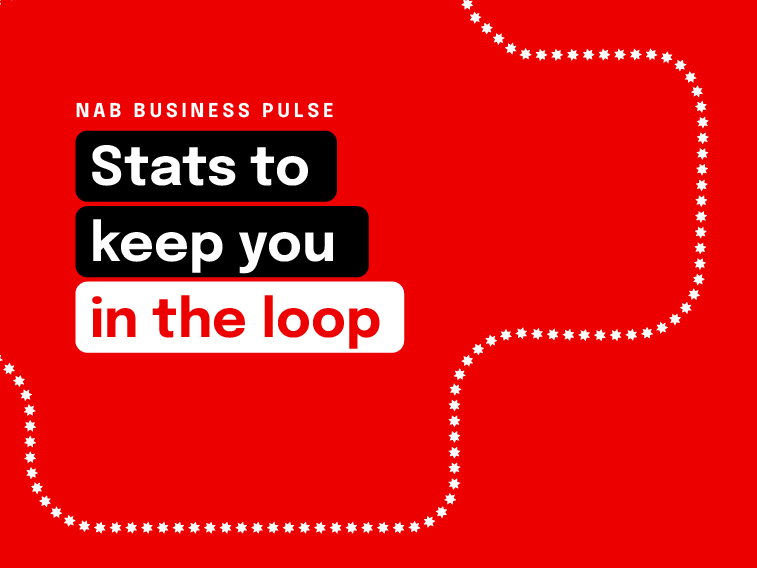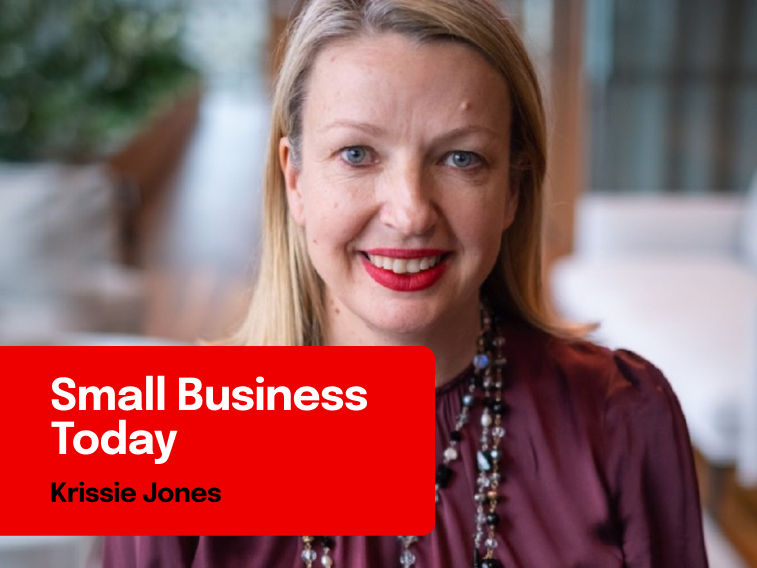Change is a constant in our global environment, but that's all the more reason to keep moving forward on your terms.


Article
Women-led businesses won a mere four per cent of venture capital in 2023. NAB’s new Executive of Business Direct and Small Business, Krissie Jones, shares her thoughts on how we can better support female ambition.

Over the past few months, I’ve had the wonderful opportunity to meet with many highly impressive businesswomen – talented entrepreneurs who’ve proactively pursued their dreams.
It makes it all the more jarring to read just how high the barriers are for too many women like them.
According to the latest State of Australian Startup Funding report, a stunning 75 per cent of female SME founders believe their gender has impacted their ability to raise capital – in stark contrast to just nine per cent of men.
It’s also confronting to find out that only 1 in 4 female founders (26 per cent) feel supported by the wider Australian entrepreneurial community and startup ecosystem, compared with 57 per cent of men.
It’s hardly surprising though. While women-led businesses make up about one third of all small businesses in Australia, they received just four per cent of all venture capital funding in 2023 and represented only 12 per cent of all deals.
Quite simply, Australia has to do better.
As a community, we must do more to support our female entrepreneurs – to give them the opportunities they deserve and need to turn their ideas into thriving businesses.
This would not only benefit them, but our country as well. Research has shown that boosting the number of female entrepreneurs to parity with men would add between $71 billion and $135 billion to Australia’s economy.
But what would this support look like?
Greater access to financing is crucial. Turning this into a reality, however, calls for a change in attitudes – to the preconceived notions we can unwittingly hold.
The affinity bias, for instance, is particularly unhelpful when it comes to women looking for early stage funding. It means prospective financiers are much more likely to select projects that closely match their own experience – a challenge for businesswomen given far fewer are female.
Tackling such biases will take time. However, there are other more practical steps we can take now to redress the balance. Mentorship is key, as are networking opportunities and connections to key players. In addition to opening up new avenues for funding, these go a long way to expanding the knowledge pool and tools that are crucial to a business owner’s success.
They can also help give women the self-assurance they need throughout the business journey – including at the very outset. According to a 2023 Enterprising Me research report, which focused on Australian women in their 40s and 50s, fear of failure (81 per cent) and a lack of confidence (78 per cent) were holding back many aspiring women from establishing their own business.
Certainly, self-confidence can take you a long way – something I saw up close among the businesswomen I recently spoke to.
One was Erin Ender, the owner of SheBang!, a community dance yoga space in Melbourne. I was struck by her sheer enthusiasm, but also her willingness to embrace risk. This is a woman who took a huge gamble by moving from academia into the business world – a completely different venture to anything she’d tried before.
She wasn’t the only businesswoman to strike me in this way. I also heard from the buoyant franchisee owner of a Pilates studio who, again, had gone to great lengths to back herself.
The odds were daunting. There she was, a completely new business owner, with no background in how to access capital or address the other myriad complications that exist in this space. Yet she gave it her all and now, thanks to wide-ranging support (including insights from NAB about how best to access finance) she’s well on her way to making her business a profitable one.
It’s this kind of practical support that NAB is determined to excel in. Yet we well understand that it takes much more than once-off advice.
It’s why we’ve chosen to partner with business networking groups Apropela, Business in Heels and Chief Meta Chicks. All three are instrumental in helping female entrepreneurs grow their businesses by bringing together like-minded women for networking-style opportunities and one-on-one mentoring.
It’s through these all-important connections that women can access a range of individuals well placed to help them at various stages of their journey – whether that’s a tax expert or someone who’s already trod a similar path.
In the meantime, there are other ways to improve the flow of understanding and, hence, make the journey easier for women – whatever their background.
At NAB, for instance, we’re increasing the number of female leaders we have on board through our highly successful 1500 Degrees talent program.
At a broader level, we’re working to ensure our bankers can better respond to the rich diversity of backgrounds – languages, religions and cultures – our customers represent. This includes introducing a formal language service so we can help overcome some of the communication barriers that exist.
Of course, none of these measures will change the bigger picture for Australia’s businesswomen overnight. But they represent important steps that we can, and should, be taking.
© National Australia Bank Limited. ABN 12 004 044 937 AFSL and Australian Credit Licence 230686.